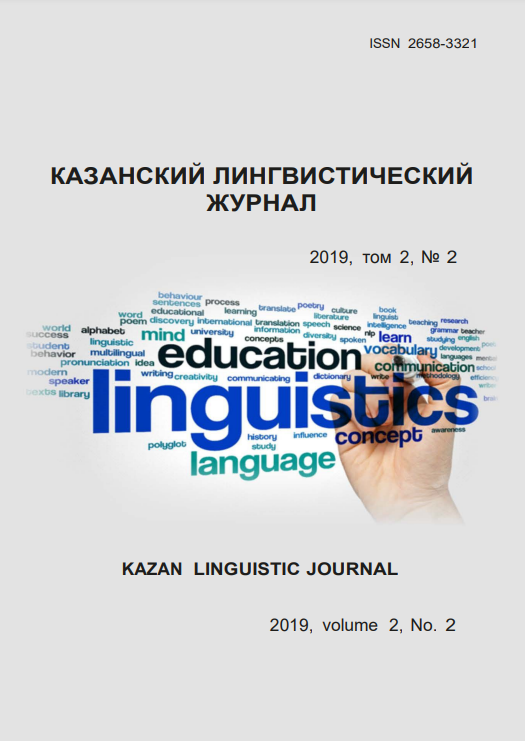Russian heritage learners’ goals and motivation
Keywords:
heritage language, bilingualism, second language acquisition, motivation,, identity, curriculum design, teaching and researchAbstract
This article focuses on the specifics of heritage language learners’ motivation and learning goals and compares it with the motivation of traditional L2 learners. The aspects of heritage learners’ motivation are analyzed through the data received from the learners’ questionnaires and interviews in which the Russian heritage learners reflect on the issues of their cultural identity, their own perception of their heritage language strengths and weaknesses, and their personal goals and motivation in learning the heritage language. The results obtained in the survey point to the prevalent integrative motivation of heritage learners. The article also contains curriculum design recommendations for heritage language learners in light of their motivational orientation and long-term language goals.
References
Литература
Carreira, M. (2004). Seeking explanatory adequacy: A dual approach to understanding the term “heritage language learner.” Heritage Language Journal, 2(1)
// URL: www.heritagelanguages.org
Carreira, M., & Kagan, O. (2011). The results of the national heritage language survey: Implications for teaching, curriculum design, and professional development. Foreign Language Annals, 44(1). Pp. 40–64.
Gardner, R. (2010). Motivation and second language acquisition – The socio-educational model. New York: Peter Lang.
Kagan, O. (2005). In support of a proficiency-based definition of heritage language learners: The case of Russian. International Journal of Bilingual Education and Bilingualism, 8(2). Pp. 213–221.
Kagan, O., & Dillon, K. (2001). A new perspective on teaching Russian: Focus on the heritage learner. Slavic and East European Journal, 45(3). Pp. 507–518.
Montrul, S. (2016). The acquisition of heritage languages. Cambridge: Cambridge University Press.
Polinsky, M., & Kagan, O. (2007). Heritage languages: in the “wild” and in the classroom. Language and linguistic compass, 1(5). Pp. 368–395.
Van Deusen-Scholl, N. (2003). Toward a definition of heritage language: Sociopolitical and pedagogical considerations. Journal of Language Identity and Education, 3. Pp. 211–230.






